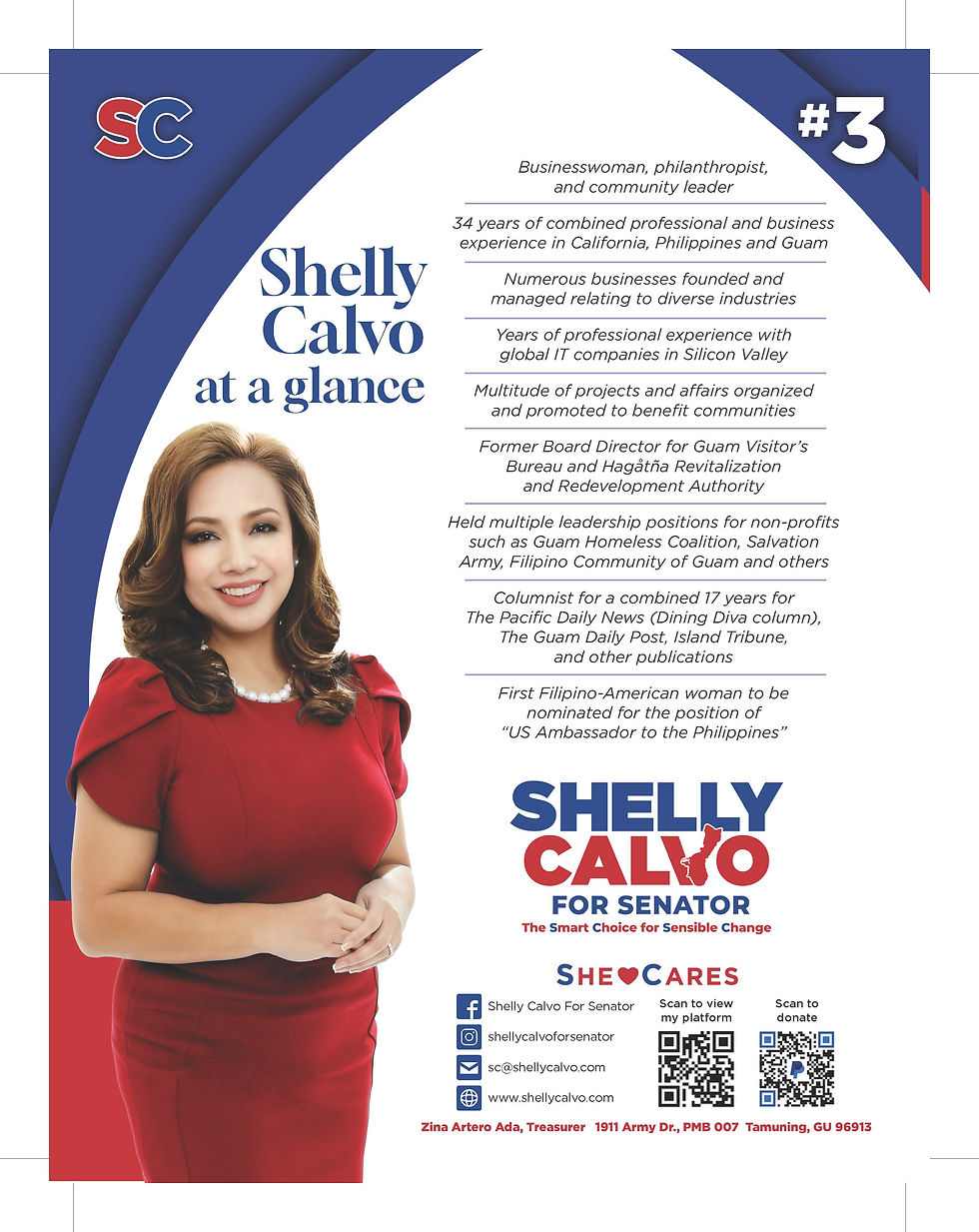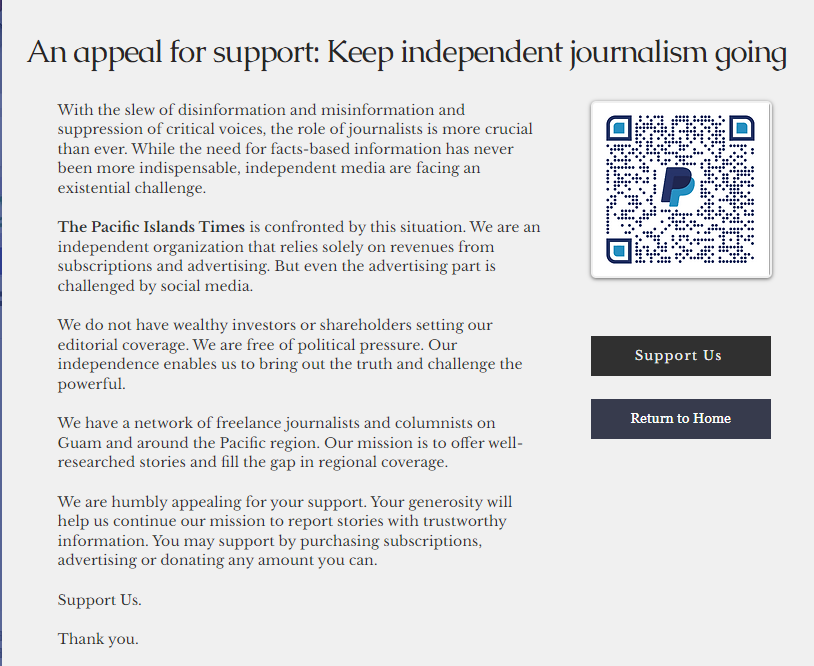
By Ron Rocky Coloma
As Guam gears up for the general elections on Nov. 5, the business community is watching closely to see what candidates have to offer. As the island faces challenges such as economic recovery, infrastructure development and workforce shortages, the private sector is eager to see policies that will foster growth and stability.
Catherine Castro, president of the Guam Chamber of Commerce, shared insights on what qualities the business sector seeks in congressional and senatorial candidates, identifying the factors that will influence their voting decisions.
Elective offices are public jobs paid for by the taxpayers. The business sector, considered an influential voting bloc, sets their criteria the same way they do for private sector jobs, seeing to it that the most qualified candidates get hired.
“There are several key qualities and qualifications that many in the private sector look for in a candidate,” Castro said.
The candidates’ economic achievements and policies, for example, are critical factors in swaying the business sector. “Relevant experience in professional fields and even prior experience in public office are important,” Castro said. “Candidates need to have a track record of trustworthiness and integrity, along with strong communication skills to articulate policy positions clearly.”
Since elected officials are trusted with public funds, the candidate’s financial acumen matters. “Being able to grasp complex economic and financial issues is very important,” Castro said. “Candidates should understand their role in the sustainability of the local private sector so as to keep residents employed in good-paying jobs, improving the quality of life for all local residents.”
ADVERTISEMENT
Castro expressed disappointment with the incumbent leaders’ budget performance, particularly the enactment of the 2025 appropriations act that pegs the spending level at $1.3 billion— the highest in Guam’s history— but shortchanges health care and education. “This law may have unintended consequences on the business environment, and we are closely monitoring its effects," she warned.
Businesses are particularly focused on the island’s top economic concerns, including tourism, human resource availability and public services.
“The availability of human resources to serve all industries, as well as the state of our public services — including public safety, education, health and transportation — are also priorities,” Castro said.
Tourism is a cornerstone of Guam's economy, but the sector is still struggling in the aftermath of the 2020 global pandemic and Typhoon Mawar, which pummeled the island in May 2023.
“The crippling impact of the global pandemic and Typhoon Mawar on our island’s tourism industry has made recovery difficult,” Castro said. “Initiatives to improve the Guam brand and boost visitor arrivals are crucial, and this includes enhancing cruise ship activities through infrastructure projects like the Hotel Wharf rehabilitation.”
Infrastructure development, particularly in transportation, energy and water, is another key area that the business community would like to see addressed by incoming leaders. “Investments in these areas are imperative to reducing the associated costs of doing business and living in Guam,” Castro said.

Policywise, the business sector is seeking reforms that will create a friendly investment market and stable business climate. Castro said Guam needs a more favorable regulatory environment with reduced bureaucratic hurdles. “This includes streamlining processes for obtaining permits and licenses necessary for business operations,” she added.
On the tax front, the Guam Chamber of Commerce hasn’t given up on its push for the business privilege tax rollback. BPT was raised from 4 percent to 5 percent in 2018 as part of the government of Guam’s strategy to make up for the revenue loss resulting from President Trump's Tax Cuts and Jobs Act that dramatically cut taxes and eliminated certain tax breaks. Persistent proposals in the legislature to roll back the BPT rate to the 2018 level have repeatedly fallen through.
“We would like to see the BPT reduced back to 4 percent to provide immediate relief to all businesses, and eventually, a transition to a sales tax system,” Castro said.
Workforce development also remains a priority for businesses as labor shortages continue to strain various industries. Castro highlighted the need for public and private sector collaboration to address this issue through workforce training programs and skill development initiatives at school levels.
“Collaborative efforts to support workforce training programs, as well as coaching and developing interest and skills at various school age levels, are key to addressing future workforce needs,” Castro said.
The business community is also advocating for affordable housing solutions to accommodate the island’s growing population, particularly as Guam braces for an expected influx of residents to support national defense initiatives.
“Initiatives to develop affordable housing options will stabilize the real estate market and help meet the needs of our growing population,” Castro said.
While the chamber does not endorse specific candidates, the business sector sets high expectations for the island’s future leaders.
“There are challenges ahead,” Castro said. “Elected officials will need to address a number of issues that plague our island. They will need to make tough choices, such as making tax reforms, supporting infrastructure development and cutting non-essential government jobs.”
The upcoming election will shape the future of Guam’s economy for years to come. With the business community voicing its concerns and priorities, it remains to be seen how candidates will respond and what the island’s next leaders will bring to the table.
Subscribe to
our digital
monthly edition





Kommentare